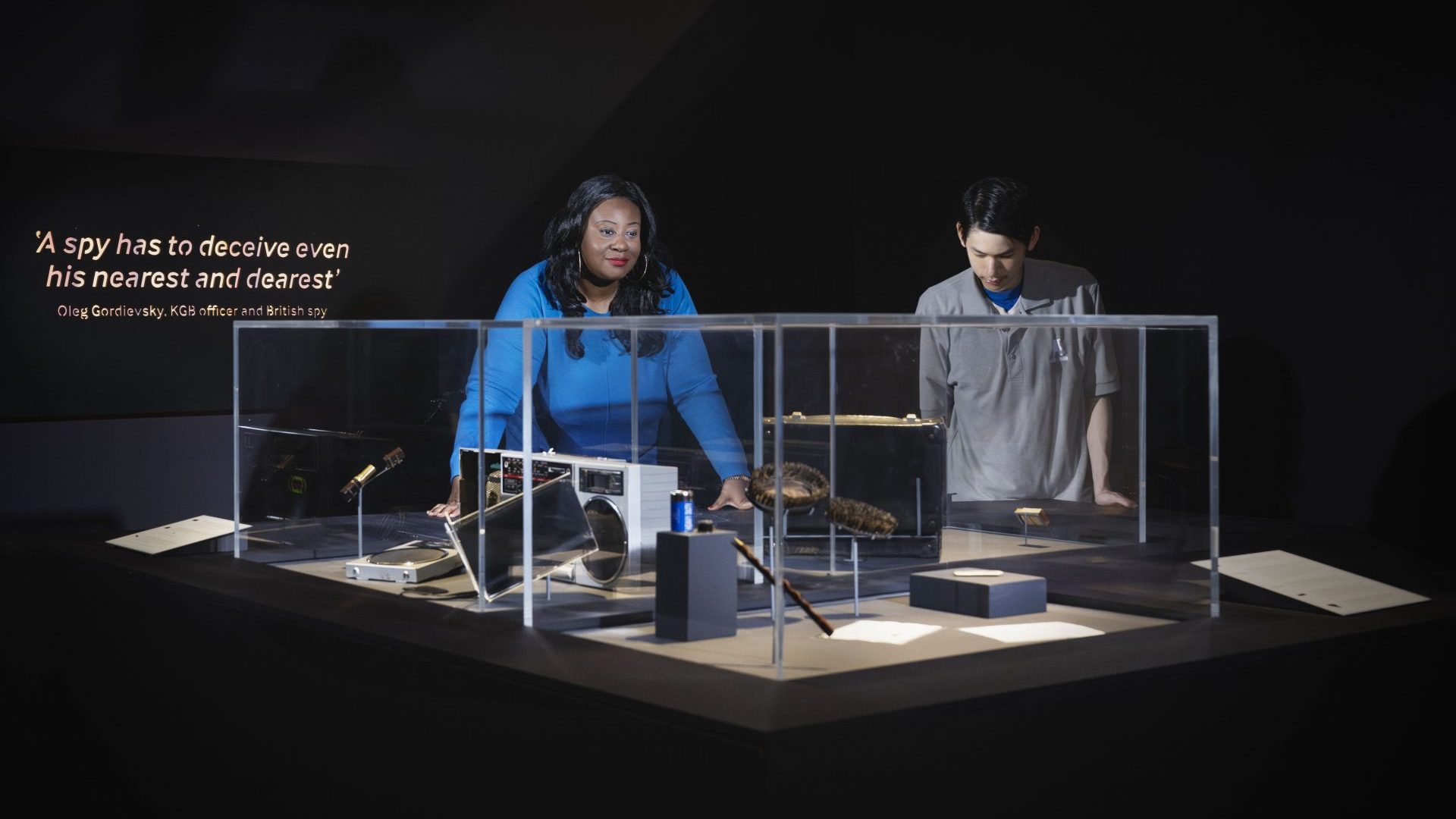A fountain pen capable of firing a jet of tear gas. A hollowed-out brush with a secret compartment for rolls of film. Lipstick containing a hidden subminiature camera. Not creations of James Bond’s Q, or from the mind of John le Carré, but gadgets from the very real world of espionage, contained in a major new exhibition at London’s Imperial War Museum (IWM).
Spies, Lies and Deception is the IWM’s blockbuster autumn show, interrogating the role, purpose and human cost of deceit and misdirection from the First World War to the present day – a present day which, serendipitously for the exhibition’s launch perhaps, has seen allegations of spying for China at Westminster remind us that state subterfuge did not collapse with the Berlin Wall.
The more than 150 objects on show are frequently scarcely believable. The British-produced ‘German’ cigarette papers containing subversive messages encouraging factory workers to fake illness and avoid work, thus slowing down war production. Footprint overshoes created for agents operating in south-east Asia, disguising both their footprints and the direction they were walking in. A 1980s boombox radio, designed by the KGB with surveillance equipment hidden behind the speakers.
Widening the theme of misdirection, and particularly eerie, are the papier-mâché heads used to deceive snipers and draw out their positions in the First World War trenches (taking realism to absurd lengths, some even had cigarettes which the operator could smoke through a rubber tube). In a sign of subsequent regression, Russia’s invasion of Ukraine has reportedly seen Putin send callow recruits ‘over the top’ as cannon fodder to smoke out Ukrainian forces.
Indeed, Putin’s Russia hangs over later segments of this epic of an exhibition, with a newly-commissioned interview with Belingcat founder Eliot Higgins. Belingcat, an international collective of researchers, used open source data to uncover the real identities of those responsible for the Salisbury Novichok poisonings in 2018. While methods change, state-level deception lives on.
“Espionage and deception are both subjects which endlessly fascinate,” says Michelle Kirby, the exhibition’s co-creator, when we meet ahead of its opening. “We come to it with preconceptions based upon popular culture, based upon fiction, but what we really wanted to do in this exhibition is showcase the true stories, the real people at the heart of these stories, the actual objects that were a part of these plots and bring the truth to people, if you like. It’s been fascinating to work on.”
Some of these real people you may know. Noor Inayat Khan, the first female wireless operator sent into occupied France, where she successfully transmitted messages to London for four months before being betrayed, captured and executed. Double agents Karl Fuchs and Kim Philby, whose deceit changed the lives of those tangled up in their webs of lies. Others you won’t because, frankly, they weren’t very good at it: Haicke Janseen and Willem Roos, two early 20-century Dutch spies posing as travelling cigar salesmen and spying for the Germans were almost immediately caught, possibly as their unsophisticated code could be cracked by a decent Only Connect contestant.
And all the way through are the parallels with today. “When you go through the section on the Portland spy ring [an espionage group active in the UK between 1953 and 1961] people will have at the back of their minds parallels of spies in suburbia, spies among us,” says Kirby. “There are some interesting parallels in terms of dummy tanks in the Second World War. You see dummy tanks in the Ukraine war. Whether it’s headlines in terms of alleged spies in Parliament or Ukraine using dummy radar equipment, dummy weapons, you can see that this is very much with us today still. It’s very relevant.”
I wonder aloud if, having devoted two years to curating this remarkable show, Kirby travelled home each night looking around at her fellow Tube commuters and wondering what they were up to.
“It’s interesting, isn’t it,” she laughs. “It does make you think about truth and fiction, and perception and how much you can ever really, truly know someone.”
Spies, Lies and Deception runs at IWM London until April 14, 2024










